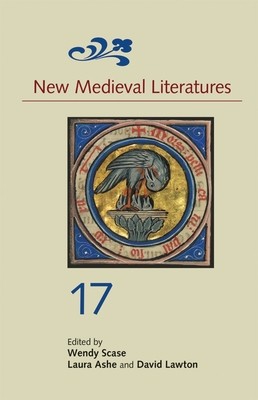
- We will send in 10–14 business days.
- Publisher: Boydell & Brewer
- ISBN-10: 1843844575
- ISBN-13: 9781843844570
- Format: 14 x 21.6 x 1.4 cm, hardcover
- Language: English
- SAVE -10% with code: EXTRA
New Medieval Literatures 17 (e-book) (used book) | bookbook.eu
Reviews
Description
An invigorating annual for those who are interested in medieval textual cultures and open to ways in which diverse post-modern methodologies may be applied to them. Alcuin Blamires, Review of English Studies
New Medieval Literatures is an annual of work on medieval textual cultures, aiming to engage with intellectual and cultural pluralism in the Middle Ages and now. Its scope is inclusive of work across the theoretical, archival, philological, and historicist methodologies associated with medieval literary studies, and embraces both the British Isles and Europe.
Essays in this volume engage with the relations between humans and nonhumans; the power of inanimate objects to animate humans and texts; literary deployments of medical, aesthetic, and economic discourses; the language of friendship; and the surprising value of early readers' casual annotations. Texts discussed include Beowulf, works by Rolle, Chaucer, Langland, Gower, and Lydgate; lyrics of the Occitan troubadour Marcabru and the French poet Richard de Fournival; and the Anglo-Saxon versions of Boethius's De Consolatione Philosophiae and Augustine's Soliloquia.
EXTRA 10 % discount with code: EXTRA
The promotion ends in 20d.04:35:52
The discount code is valid when purchasing from 10 €. Discounts do not stack.
- Publisher: Boydell & Brewer
- ISBN-10: 1843844575
- ISBN-13: 9781843844570
- Format: 14 x 21.6 x 1.4 cm, hardcover
- Language: English English
An invigorating annual for those who are interested in medieval textual cultures and open to ways in which diverse post-modern methodologies may be applied to them. Alcuin Blamires, Review of English Studies
New Medieval Literatures is an annual of work on medieval textual cultures, aiming to engage with intellectual and cultural pluralism in the Middle Ages and now. Its scope is inclusive of work across the theoretical, archival, philological, and historicist methodologies associated with medieval literary studies, and embraces both the British Isles and Europe.
Essays in this volume engage with the relations between humans and nonhumans; the power of inanimate objects to animate humans and texts; literary deployments of medical, aesthetic, and economic discourses; the language of friendship; and the surprising value of early readers' casual annotations. Texts discussed include Beowulf, works by Rolle, Chaucer, Langland, Gower, and Lydgate; lyrics of the Occitan troubadour Marcabru and the French poet Richard de Fournival; and the Anglo-Saxon versions of Boethius's De Consolatione Philosophiae and Augustine's Soliloquia.


Reviews